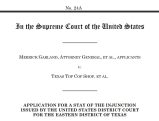
A recent court ruling blocked the Corporate Transparency Act’s enforcement, leaving 32 million businesses uncertain as the government’s swift appeal could bring deadlines roaring back. Stay alert and prepared so you can adapt quickly and avoid a frantic rush if compliance rules return.
by Zach Javdan
December 7, 2024
Recent legal developments have placed the Corporate Transparency Act (CTA)—a federal law requiring many U.S. businesses to report detailed ownership information—at the center of intense debate. Understanding what the CTA is, what the December 3, 2024 ruling means, why the government appealed immediately on December 5, and how this all affects your business is crucial.
This guide covers the CTA’s purpose, the impact of the court’s preliminary injunction, the ongoing legal battles across different courts, what triggered the recent litigation—including the Texas Top Cop Shop case—and practical tips for business owners.
1. What is the Corporate Transparency Act (CTA)?
-
- Purpose: The CTA aims to prevent criminals, money launderers, and terrorists from hiding their identities behind anonymous shell companies. It requires many companies to disclose their “beneficial owners”—the real people who own or control the entity—to the Financial Crimes Enforcement Network (FinCEN).
- Who Must Report: The CTA targets a vast range of “reporting companies,” including millions of small businesses, LLCs, and corporations formed by filing documents with a state. Certain large or regulated entities may be exempt.
- Information Required: Beneficial owners must provide their full name, birthdate, current residential or business address, and a government ID number (like a driver’s license or passport) to FinCEN.
- Goal of Transparency: By collecting ownership data, the government hopes to unmask “shell” companies used for illegal activities, thereby strengthening the U.S. financial system’s integrity.
- Original Deadline: Before the recent ruling, many existing businesses were supposed to file by January 1, 2025, and new entities formed after that date would have 30 days to report.
Examples:
-
- A family-run bakery formed as an LLC would have to disclose the owners’ names and addresses to FinCEN.
- A small tech startup with multiple investors owning more than 25% must list those individuals to FinCEN.
- A large publicly-traded corporation generally wouldn’t have to report, as public companies are exempt.
How to Proceed:
-
- Check if your company falls under the “reporting company” definition. Most small LLCs and corporations do.
- Identify all beneficial owners—those with substantial control or owning at least 25%—early on.
- Keep basic ID documents handy for owners (e.g., driver’s licenses or passports).
- Stay informed about changing legal deadlines or new guidance.
FAQs:
-
- Is the CTA already in effect? It was set to start in 2024/2025, but a recent court ruling temporarily halted its enforcement.
- Will large businesses or nonprofits need to file? Many larger or highly regulated businesses and certain nonprofits are exempt. Most small entities formed by filing documents at the state level are covered.
- Is my personal info public? FinCEN is supposed to keep beneficial owner data confidential and share it only with authorized entities like law enforcement, but privacy concerns exist.
- What happens if I don’t comply? Penalties could include steep fines and even criminal charges if enforcement resumes and you fail to file on time.
- Can I file voluntarily now? Yes, FinCEN will accept voluntary filings, even during the injunction.
2. The December 3, 2024 Court Ruling
-
- Nationwide Preliminary Injunction: On December 3, a federal judge in the Eastern District of Texas issued a preliminary injunction, halting the CTA’s enforcement and pausing the January 1, 2025 filing deadline.
- Constitutional Concerns: The court suggested the CTA might exceed Congress’s powers, intruding into areas traditionally regulated by states and raising questions about federal overreach.
- Impact on Businesses: With enforcement paused, companies are not currently required to file. No penalties apply while the injunction is in effect.
- Scope of Injunction: The injunction is nationwide, meaning all businesses across the U.S. benefit from the temporary pause.
- Not a Final Decision: This is a preliminary ruling. The judge’s order is not the last word on the CTA’s constitutionality—it’s just the opening round.
Examples:
-
- A small consulting firm that hadn’t filed yet is relieved it won’t face penalties for now.
- A family-owned retail store can take a “wait and see” approach without rushing to file before January 1.
How to Proceed:
-
- Don’t panic or rush—there’s no immediate penalty for not filing.
- Stay informed as the appeal progresses. Deadlines could reappear with short notice.
- Keep beneficial ownership info ready in case the injunction is lifted.
FAQs:
-
- Can the injunction be undone quickly? Possibly—if the appeals court grants a stay or overturns the ruling, reporting could resume fast.
- Do I still need to worry about compliance? Yes, be prepared. The situation may change if higher courts reinstate the CTA requirements.
- Does this mean the CTA is unconstitutional? Not necessarily. This is just a preliminary conclusion by one court. Other courts disagree.
Understanding the Texas Top Cop Shop Case
The December 3 injunction originated from a specific lawsuit: Texas Top Cop Shop, Inc. et al. v. Garland, filed in the Eastern District of Texas. One of the plaintiffs, Texas Top Cop Shop, is a small, family-run retailer serving first responders in Conroe, Texas. Along with other small businesses, nonprofits, and advocacy groups, it argued that the CTA overstepped federal authority and imposed new, burdensome reporting requirements that many locally-focused entities never had to face before.
The plaintiffs contended that the CTA interferes with states’ longstanding roles in governing corporate formation and internal affairs. They emphasized that forcing small entities—often operating only within their home state—to disclose sensitive owner information does not necessarily advance the CTA’s anti-crime goals. Instead, it infringes on privacy, First Amendment associational rights, and the delicate federal-state balance. Texas Top Cop Shop and its co-plaintiffs saw the CTA as an unjust expansion of federal power over businesses that are far removed from the complex international crimes the law aims to prevent.
By understanding the Texas Top Cop Shop case, you see the CTA’s controversy in real-world terms. It’s not just high-level constitutional theory—this injunction and subsequent appeal were sparked by very tangible fears from actual businesses about compliance costs, privacy issues, and the fundamental question: who should control and oversee America’s corporate structures, and at what cost?
3. The Quick Appeal on December 5, 2024
-
- Immediate Response: Just two days after the injunction, the Department of Justice filed a notice of appeal to the U.S. Court of Appeals for the Fifth Circuit. This signals the government views the CTA as critical and wants the injunction lifted sooner rather than later.
- What’s at Stake? If the government succeeds, the CTA’s deadlines and reporting requirements might come back into force, potentially before January 1 or shortly thereafter.
- Expedited Process: Given the time-sensitive nature, the Fifth Circuit might move swiftly. But appellate decisions often still take months.
- No Guarantee of Reversal: Appeals are complex. While some courts backed the CTA, no one can predict with certainty the Fifth Circuit’s decision.
Examples:
-
- If the appellate court issues a quick ruling and overturns the injunction, businesses may need to file promptly.
- A company holding off on gathering data might scramble if the deadline is reinstated shortly before the new year.
How to Proceed:
-
- Stay alert for news on the appeal outcome. Changes could happen rapidly.
- Consider preparing your beneficial ownership information now to avoid last-minute chaos if the CTA is reinstated.
- If you’re unsure of your obligations, consult with an attorney who follows CTA developments closely.
FAQs:
-
- Will the Fifth Circuit issue an immediate reversal? Possibly not immediate. Appeals involve briefing and argument, often taking weeks or months.
- If the appeal succeeds after January 1, what then? A new compliance window or deadline might be set, but you might have less time to react.
- Should I just file voluntarily now? Some businesses prefer to file now to ensure compliance no matter the outcome. It’s a strategic choice.
4. Conflicting Court Opinions Across the U.S.
-
- Other Rulings: Federal courts in Oregon, and Virginia denied preliminary injunctions against the CTA, meaning they saw no immediate constitutional problem at that early stage.
- Why the Disagreement? Judges differ on whether the CTA falls under Congress’s enumerated powers (like the Commerce Clause) or goes too far, intruding on states’ rights and privacy.
- Potential for Supreme Court Review: If appellate courts also split, the Supreme Court may ultimately decide the CTA’s fate.
- Ongoing Legal Saga: Expect more legal action, as the CTA’s supporters and critics both have strong motives to fight.
Examples:
-
- In Oregon, a court denied a request to block the CTA, suggesting no immediate constitutional problem at that stage.
- In Virginia, a court let the CTA stand without pausing enforcement.
How to Proceed:
-
- Keep an eye on different court decisions. A single favorable or unfavorable ruling isn’t the final word.
- If your business operates in multiple states, know that the injunction is nationwide, so you’re temporarily safe from penalties everywhere.
- Prepare for the possibility that ultimately higher courts could settle the matter.
FAQs:
-
- Why do courts disagree? Constitutional interpretation can differ among judges, especially with something as novel as the CTA.
- Could this be headed to the Supreme Court? Yes, if conflicting decisions persist, the Supreme Court may step in to resolve the split.
- Is there any “safe” path for businesses? Preparation. Being ready to file if needed. The law might shift rapidly once appellate decisions roll in.
5. What Should Businesses Do Now?
-
- Stay Informed: Follow reputable news sources, FinCEN announcements, and legal updates from professional advisors.
- Gather Owner Information: If not done already, identify your beneficial owners and have their documents ready.
- Consider Filing Voluntarily: Some companies choose to file now to avoid a last-minute rush if the CTA revives soon.
- Assess Privacy Concerns: Owners might worry about personal data. Recognize that FinCEN is legally required to keep data secure, though trust remains a concern.
- Consult Experts: An attorney or compliance specialist can help you navigate this shifting landscape.
Examples:
-
- A consulting firm hires a lawyer to track the appeal’s progress and advise them when to file.
- A startup compiles a folder with all owners’ IDs and addresses, ready to submit if required.
How to Proceed:
-
- Keep your documents organized. That way, if the injunction ends abruptly, you’re not starting from scratch.
- Check FinCEN’s website periodically for updates or clarifications.
- Consult your legal counsel to weigh the pros and cons of filing now vs. waiting.
FAQs:
-
- What if I do nothing now? You’re not obligated to file during the injunction, but you risk scrambling later if the CTA returns suddenly.
- Is it hard to file? Filing is online and fairly straightforward. The challenge is identifying owners and gathering their ID info.
- Do I need a lawyer? Not necessarily, but guidance can help ensure you meet legal standards correctly.
6. Potential Outcomes and Timelines
-
- Scenario 1—Injunction Stands: If higher courts uphold the Texas ruling, the CTA may remain blocked until a final trial or even permanently if the court finds it unconstitutional at the end.
- Scenario 2—Injunction Overturned Quickly: If the Fifth Circuit reinstates the CTA soon, businesses could face a tight timeline to comply with the original deadline or a new one.
- Scenario 3—Different Courts, Different Results: Conflicting rulings from different regions could fast-track a Supreme Court hearing. That would take longer, potentially months or even a year or more.
- Long-Term Resolution: The legal journey may last well into 2025 or beyond. Patience and preparedness are key.
Examples:
-
- If the appeals court rules by early 2025 reinstating the CTA, a business might have to file immediately after the decision.
- If no higher court ruling arrives for months, companies remain in a holding pattern.
How to Proceed:
-
- Keep a flexible mindset. Accept that timelines might shift multiple times.
- Be ready to adjust to a reinstatement of deadlines at short notice—preparation avoids panic.
- If a final court decision upholds the CTA, expect long-term reporting obligations to become part of normal business operations.
FAQs:
-
- How soon could everything change? Potentially within weeks if the appellate court decides quickly, or it might drag on.
- What if I miss the deadline if it comes back? Penalties are severe, so keep tabs on the news and your lawyer’s updates.
- Are there any grace periods if deadlines return? Possibly, but nothing is guaranteed. Courts and agencies might set a short grace window.
7. Considering Professional Help
-
- Legal Experts: Attorneys specializing in corporate law and compliance can advise you on what to do next.
- Time is Money: Investing in guidance now could save panic and costly errors later.
Examples:
-
- A small café’s owners consult a local attorney who explains the current injunction and their best next steps.
- A tech startup hires a compliance consultant to maintain a “ready-to-file” binder of beneficial owner info.
How to Proceed:
-
- Don’t guess—get professional advice if you’re unsure about your obligations.
- Consultants can help maintain readiness in a fluid legal environment.
- If penalties resume, you’ll be thankful you sought guidance early rather than facing last-minute confusion.
FAQs:
-
- Is hiring a lawyer expensive? Many offer consultations. The complexity of the CTA might make professional help well worth the cost.
- Can my accountant help? Yes, accountants familiar with entity structures can help identify owners and ensure accurate reporting if required.
- Should I wait until the final decision? Waiting is risky if decisions come swiftly. Being prepared now reduces stress.
Summary

Did You Know? Over 32 million U.S. businesses may be affected by the CTA’s reporting requirements, making this issue a nationwide concern for entrepreneurs.
The Corporate Transparency Act promised greater clarity in the fight against illicit finance, but a December 3, 2024 ruling put its enforcement on hold, sparking an immediate appeal on December 5. Businesses now stand at a crossroads, uncertain whether to comply now or wait and see how the legal saga resolves.
Key Takeaways:
- The CTA is currently paused but not gone—appeals could reinstate it.
- Conflicting court opinions increase uncertainty.
- Being prepared to file if needed is a smart strategy.
- Professional advice can help you navigate this complex, ever-changing landscape.
Test Your CTA Knowledge
Questions: CTA Basics & Current Situation
- 1. Which court issued the nationwide injunction halting the CTA?
- A) Eastern District of Texas
- B) Southern District of New York
- C) Northern District of California
- D) District of Oregon
- 2. What is the main purpose of the CTA?
- A) Increase state filing fees
- B) Uncover hidden owners and prevent financial crimes
- C) Lower taxes for small businesses
- D) Require every business to have a public listing of owners
- 3. Currently, do companies have to file BOI reports?
- A) Yes, by January 1, 2025 no matter what
- B) No, the injunction paused the requirement for now
- C) Only if they are large corporations
- D) Only foreign companies must file
- 4. What did the government do on December 5, 2024?
- A) Canceled the CTA entirely
- B) Issued new guidance relaxing requirements
- C) Filed an appeal to overturn the injunction
- D) Extended the deadline permanently
- 5. Why is there so much uncertainty?
- A) Conflicting court rulings
- B) Ongoing appeals
- C) Questions about federal vs. state powers
- D) All of the above
Answers: CTA Basics & Current Situation
- 1. A) The Eastern District of Texas issued the injunction.
- 2. B) The CTA’s main purpose is to reveal beneficial owners to combat illicit finance.
- 3. B) Currently, no filing is required due to the preliminary injunction.
- 4. C) The government filed an appeal to try to reinstate the CTA requirements.
- 5. D) Uncertainty stems from multiple factors: conflicting rulings, appeals, and constitutional debates.
Also See
Corporate Transparency Act Bombshell: Why Your Business Needs to Act NOW
Corporate Transparency Act 2024: Essential Guide to Beneficial Ownership Reporting










